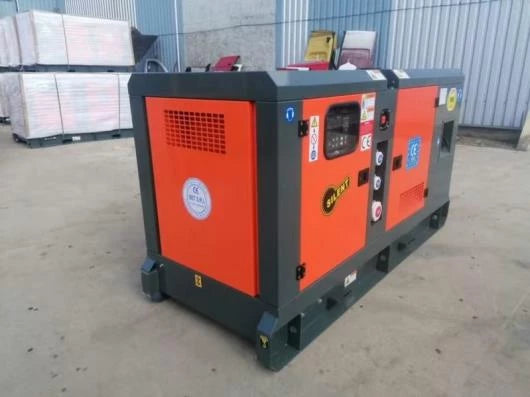Generators are indispensable tools in scenarios where consistent power is crucial, be it for events, construction sites, or as backup for businesses and homes. When considering a 50kVA generator, one of the primary decisions you'll face is selecting the right fuel type. This choice can influence the generator's efficiency, operational costs, and environmental impact. Let's delve into the various fuel options for a 50kVA generator and their respective pros and cons.
1. Diesel
Pros:
- Efficiency: Diesel engines are often more fuel-efficient than their gasoline counterparts, meaning they can run longer on the same amount of fuel.
- Durability: Diesel generators are known for their longevity and can handle long hours of continuous operation.
- Cost: While diesel fuel prices fluctuate, they are often less expensive than gasoline in many regions.
Cons:
- Noise: Diesel generators can be louder than other types.
- Emissions: Diesel engines emit more particulates and nitrogen oxides, which can be harmful to the environment.
- Maintenance: Regular maintenance is crucial to prevent issues like diesel fuel gelling in colder temperatures.
2. Gasoline
Pros:
- Availability: Gasoline is widely available and is easy to source in most regions.
- Startup: Gasoline generators often have a quicker start-up time compared to diesel.
Cons:
- Fuel Storage: Gasoline has a shorter shelf life than diesel, making long-term storage a challenge.
- Cost: Gasoline can be more expensive than diesel, leading to higher operational costs.
- Durability: Gasoline engines might not last as long as diesel engines under heavy use.
3. Natural Gas
Pros:
- Clean Burning: Natural gas burns cleaner than both gasoline and diesel, leading to fewer emissions.
- Continuous Supply: If connected to a municipal line, there's no need to refill tanks, ensuring a continuous power supply.
Cons:
- Infrastructure: Requires a connection to a gas line, which might not be available in remote locations.
- Efficiency: Natural gas generators can be less fuel-efficient than diesel generators.
4. Propane (LPG)
Pros:
- Shelf Life: Propane has an almost indefinite shelf life, making it ideal for infrequent use.
- Emissions: Burns cleaner than gasoline and diesel, resulting in fewer harmful emissions.
Cons:
- Storage: Requires storage tanks, which can take up space and need regular inspections.
- Availability: In some regions, sourcing large amounts of propane can be challenging.
5. Bi-Fuel and Tri-Fuel Options
Some 50kVA generators can run on two or even three different fuel types. These options offer flexibility, especially in situations where one fuel type might be scarce.
Conclusion
The choice of fuel for your 50kVA generator should be based on several factors, including availability, cost, intended usage, and environmental considerations. While diesel remains a popular choice for many commercial applications due to its efficiency and durability, the rise of cleaner fuels and hybrid options offers a broader selection for users prioritizing sustainability and flexibility. Always consult with experts and consider your specific needs before making a decision.

